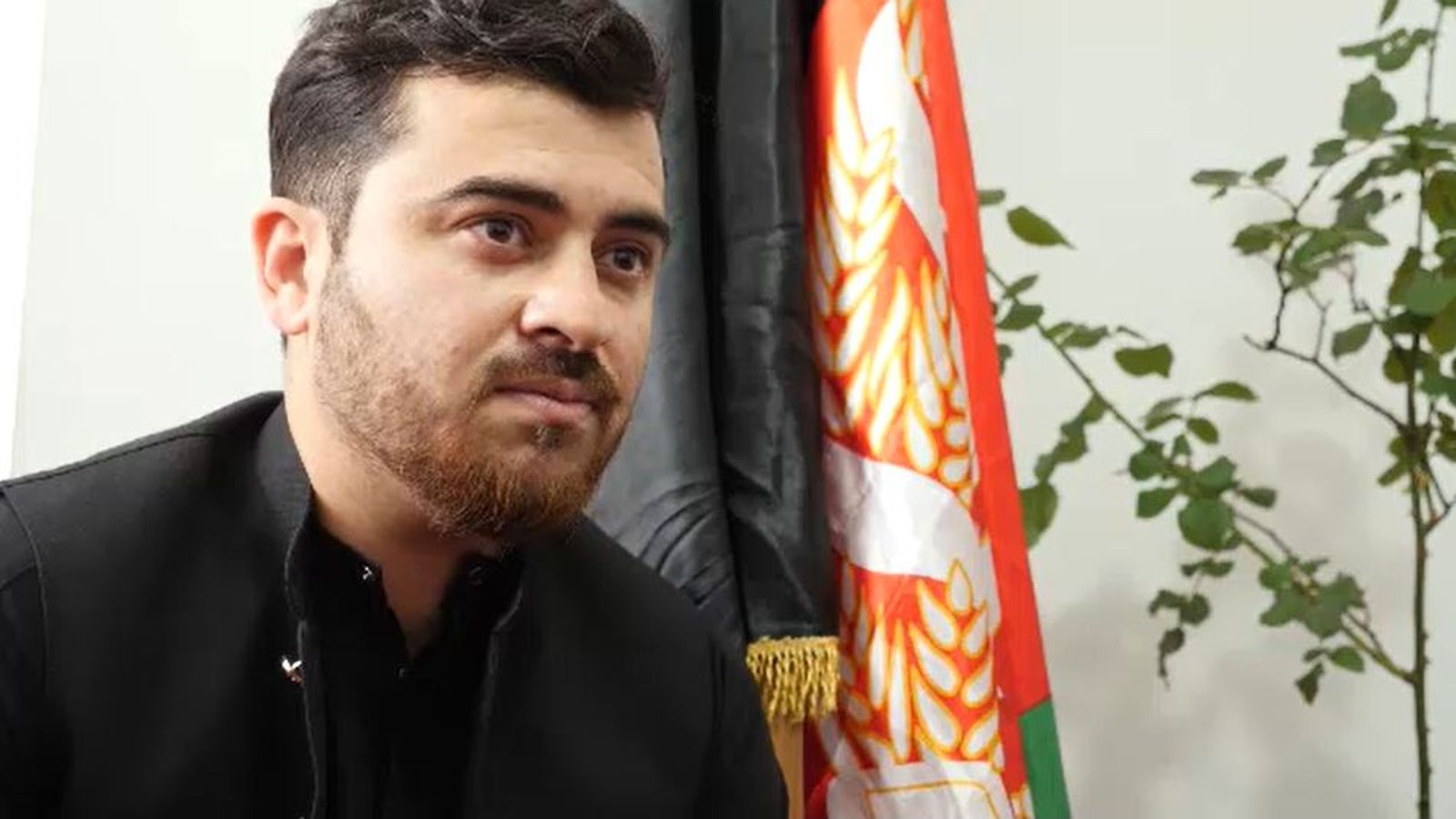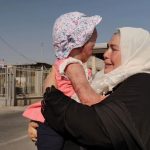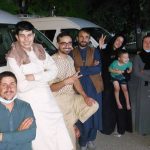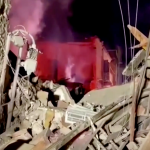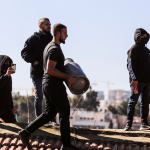There is little Abdullah Ghafoor remembers from his childhood in Afghanistan, but the fear of Taliban repercussions for not wearing a turban to school is unforgettable.
“I used to complain to my mum,” he tells Sky News.
“Why do I have to wear this piece of cloth? It doesn’t represent my education.”
It was just a year before the US-led invasion ousted Afghanistan’s extremist government, and the only explanation Abdullah’s mother could offer was: “This is Taliban rule.”
Rules and fear went hand in hand in Taliban-led Afghanistan.
Women were prohibited from working or going to school, and men were forced to grow beards and wear a turban or a cap.
Anyone caught in breach of the rules could be publicly lashed, beaten or executed.
Even a primary school student was taught to learn the rules early.
Two decades on, fear is abundant across Afghan towns and cities once more, including in Abdullah’s hometown of Jalalabad, 80 miles east of the capital Kabul.
From his home in Manchester, the student who fled when he was nine, keeps up with news through YouTube bloggers.
Afghans are asked what they want most in life. Speaking in Pastho, they reply: “Sulha,” – peace.
“I get emotional seeing that on the screen,” he says.
“When I speak to family in Jalalabad they’re really scared for their lives, they don’t know where to go, what to do.
“Where would they go even if they could? They’d only be able to go somewhere temporarily so they’d have to come back to bloodshed.
“They’re really scared for their lives and that makes us scared for them. I live thousands of miles away from them now, but still have a duty as a human being, as a relative.”
Jalalabad is not directly under threat, but the resurgent Taliban have completed a sweep of the country’s south, bringing them closer to Kabul.
The US ordered a full withdrawal of forces in April, with the last of 3,000 troops due to leave by 11 September officially ending America’s two-decade war.
But its military estimates that the Taliban could overrun the country within a few months.
“Everything is turning back into rubble, coming down to the ground again,” Abdullah, 30, says.
“It seems like it’s going back to 20 years ago and worse. Afghans feel betrayed by NATO and betrayed by the Americans.”
At university Abdullah was nicknamed ‘Taliban’ – not because that is the Pashto word for ‘students’ – but because “they thought everyone from Afghanistan had to have a long beard and wear a turban,” he says, almost laughing.
Then his face turns serious as he reflects how casually friends teased him with a word that can drill fear through Afghan hearts.
A word, two decades on, that dominates and haunts Abdullah’s memories of being a child in Afghanistan.
